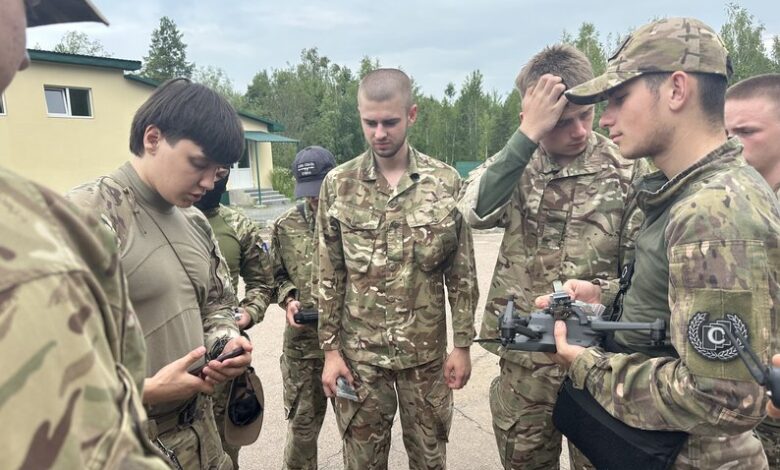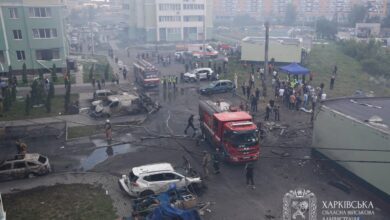In Zhytomyr, Ukrainian Armed Forces instructors teach high school students and young people how to fly drones

The full-scale war changed not only the way of thinking of older generations, but also the educational trajectories of teenagers and young people. In an environment where daily training takes place in parallel with shelling, evacuations and news from the front, the training of young people no longer covers only mathematics or languages. It gradually includes what a few years ago seemed exceptional — knowledge about tactics, drones, medical evacuation, actions in the event of shelling. Increasingly, the younger generation is not just interested in military technologies, but receives systematic training from the instructors of the Armed Forces.
How the military conducts training in Zhytomyr
One of the examples of the new educational practice was the course within the framework of the “School of Leaders” project, which is implemented by the “Centuria” public organization. In July 2025, instructors of the Armed Forces will be in Zhytomyr conducted a practical session for program participants — this time focused on mastering unmanned aerial vehicles. Young people studied the structure of drones, the principles of their connection, software settings and control mechanics. A serviceman of the 3rd separate assault brigade with the call sign “Maly” explained not only the basic design, but also the specifics of combat use: dropping ammunition, bypassing enemy electronic warfare equipment, aiming accuracy.
As the instructor noted, drones have long since ceased to be an auxiliary means — they have become the central element of modern warfare. They are used for observation, guidance, destruction of targets, recording of enemy movements. The military officer emphasized that without understanding the basic skills of working with such technologies, it is difficult to imagine an effective defense or offensive in modern conditions.
Education as preparation for real threats
One of the participants of the project, Vlad Bondarchuk, said that he first joined Centuria’s initiatives back in 2024. He was interested not only in the program itself, but also in the atmosphere created by the instructors — with practice, clear rules, and an orientation towards independence. On the course, he saw for the first time how a drone works, learned how to connect the remote control, control the flight, and also how to drop training ammunition on a target. “I’ve never launched a drone before. It was interesting. When he hit the barrel, he realized that it was not just a toy, but a precise tool. And now I understand why it is not only the military who are engaged in this,” Vlad shared his impressions.
The program in which he participates involves much more than working with machinery. During seven days, the participants completed a basic course in tactical medicine, physical training, camouflage and orienteering. Tactics classes resembled the simulation of situations at the front, where every decision is important, not just physical endurance. Emphasis is on actions in a small group, interaction, clear division of functions.
Changing the format of youth education
Initiatives such as the School of Leaders, which operate outside of formal education, are increasingly taking over functions that were previously inherent in educational institutions: the development of critical thinking, practical skills, and responsibility. The war in this context did not become an occasion for the militarization of children’s minds — rather, it showed that real security requires an understanding of technology, teamwork and self-control.
When teenagers and young people learn in practice how an unmanned aerial vehicle works, how to stop bleeding or how to act under fire, this is not a romanticization of war, but an attempt to be ready for the challenges that have already come. And here military instructors play a special role. They do not work as formal lecturers, but as mentors – with experience, with the right to give instructions, with responsibility for the consequences. That is why such training is taken seriously, not as entertainment, but as an opportunity to acquire useful knowledge.
The course in Zhytomyr became an example of how young people respond to the challenges of war not emotionally, but through action. Interest in technology, perception of the drone as a tool, readiness to study medicine and navigate the field — all this is no longer considered something exceptional. This is a new norm for a generation that was formed not in a peaceful Ukraine, but in the conditions of invasion.
The drone training conducted by the military in Zhytomyr is part of a wider transformation in how young people perceive education. In the conditions of a protracted war, the educational process, which includes the acquisition of drone skills, tactics, medicine, team interaction, is an experience that can become decisive.





